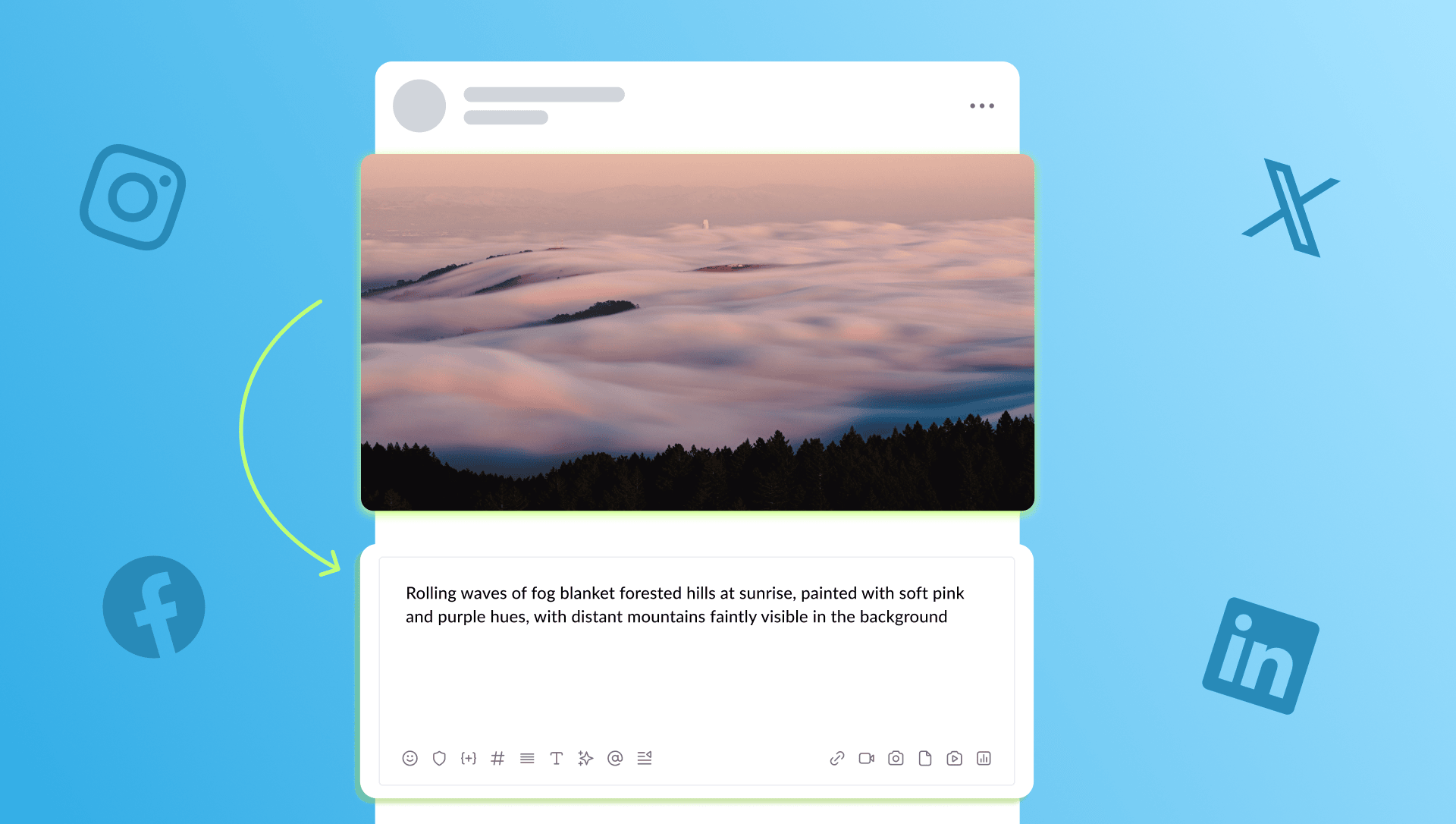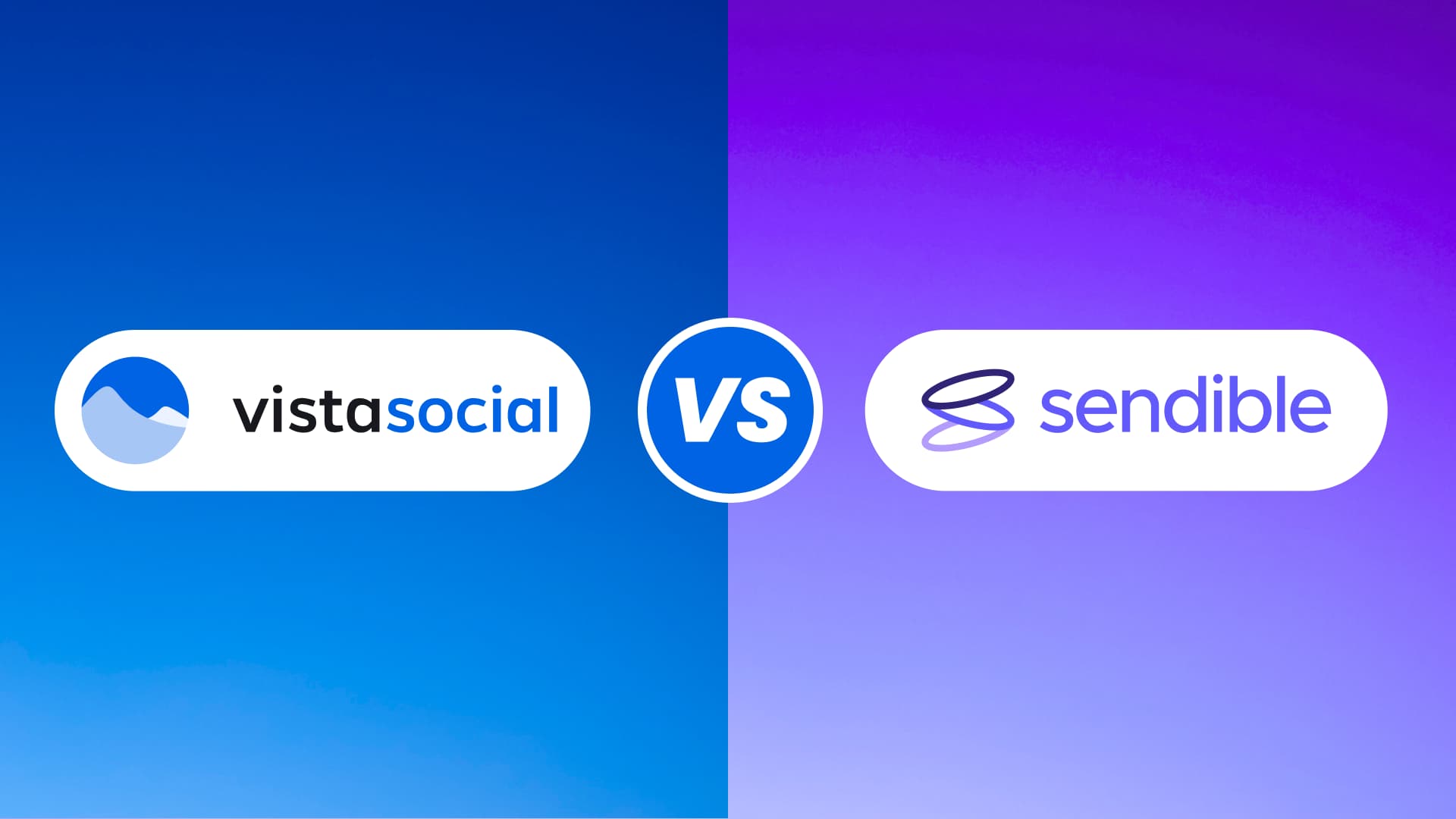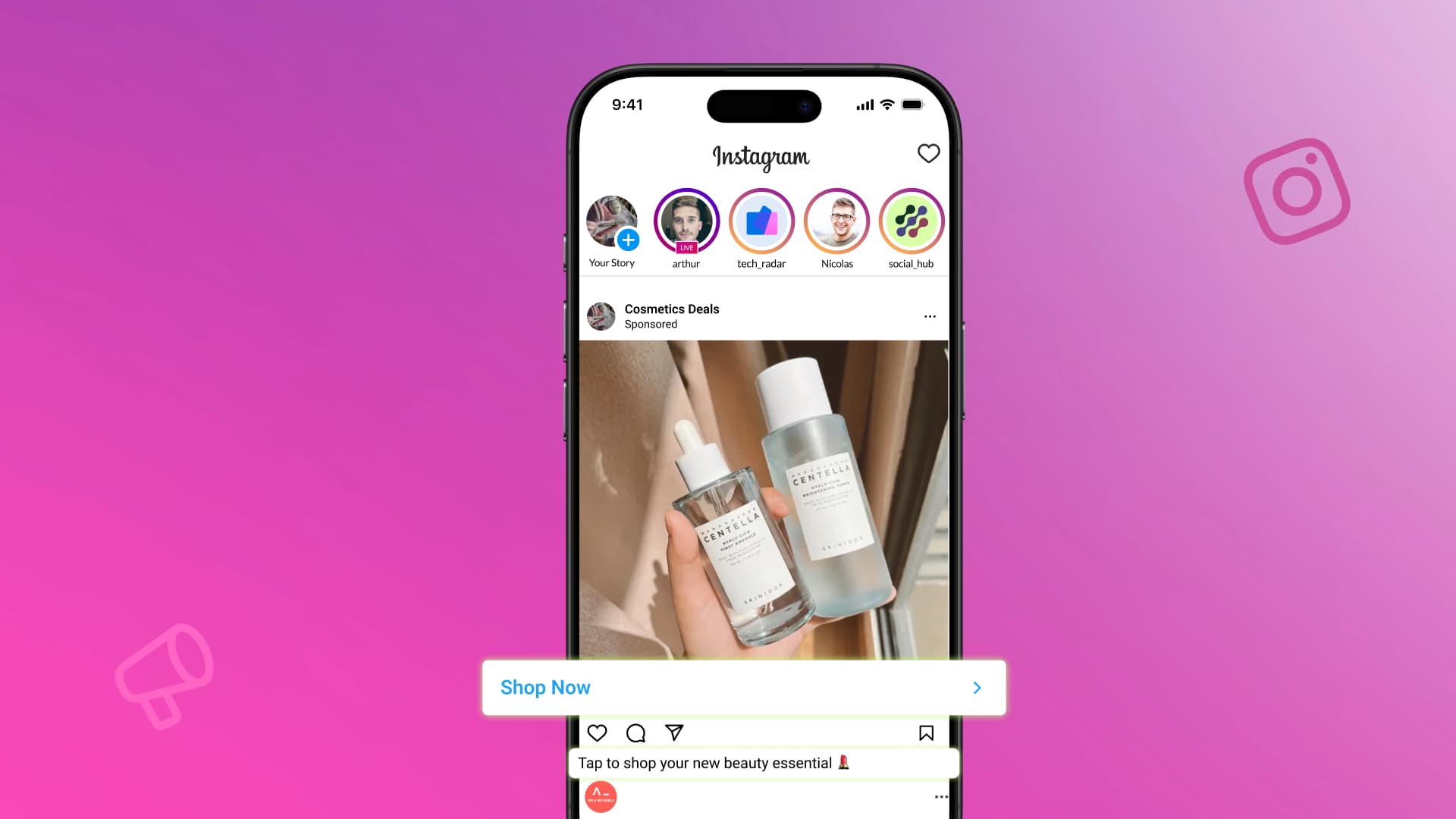New
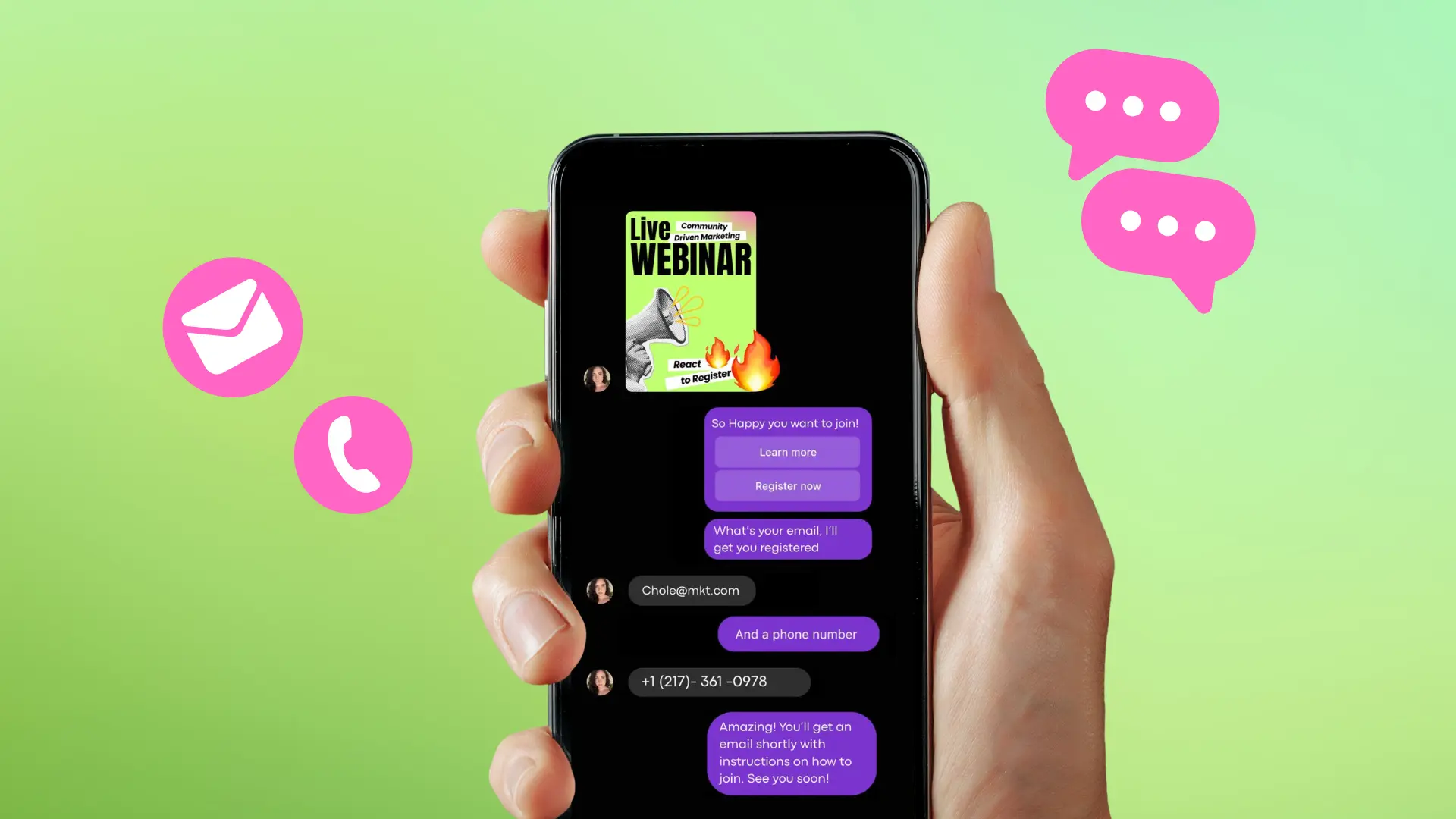
Turn Your DMs Into Lead Gen!
Learn how to collect lead data from your DMs such as email addresses, phone numbers, and more right from your social inbox. If you are not yet automating your DMs your competitors are outpacing you.
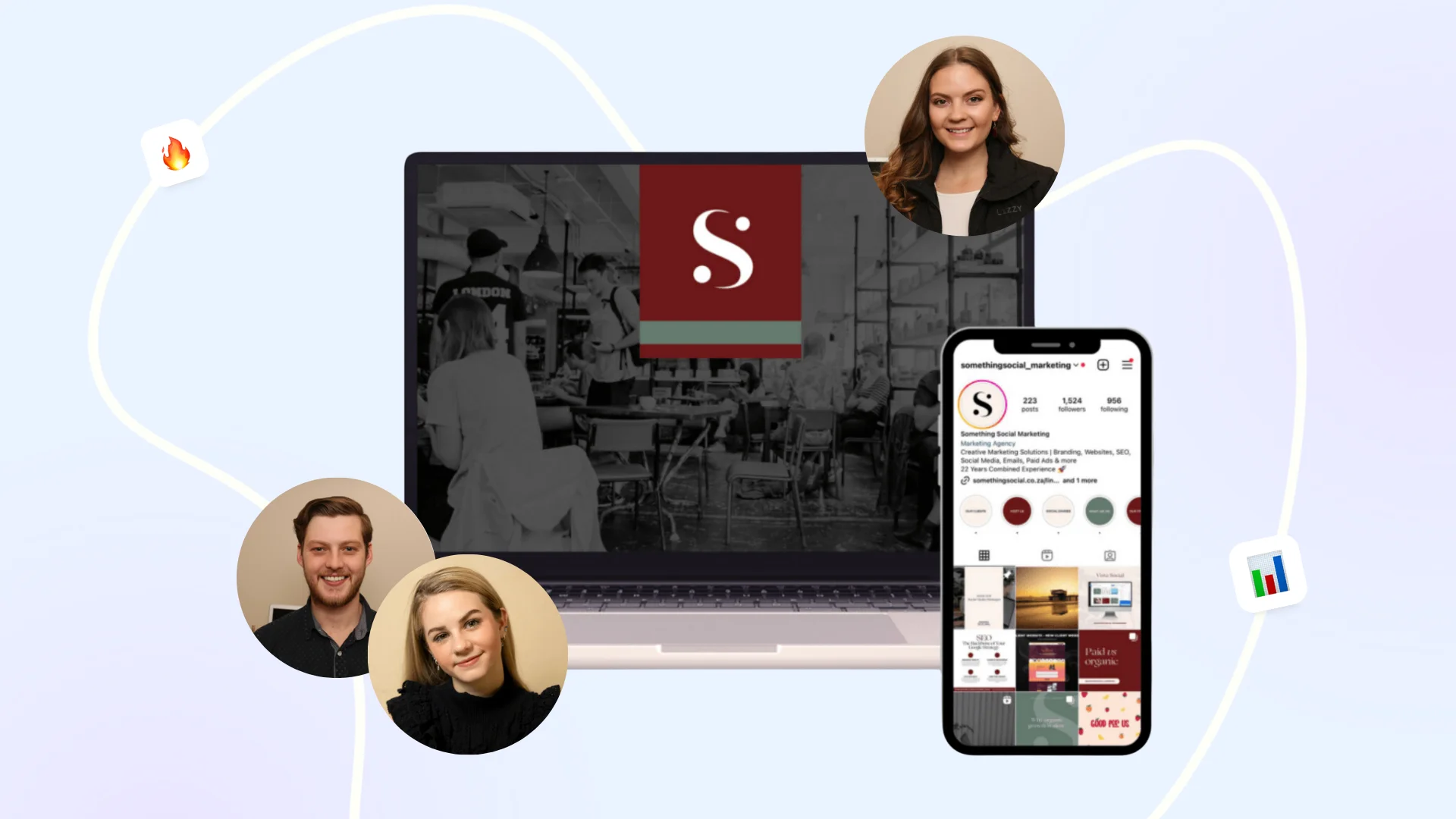
How Something Social Saved 75% of Their Time and Increased Revenue by 15%
See how a fast-growing agency improved operations, cut down hours of manual work, and unlocked new revenue opportunities with Vista Social.
New
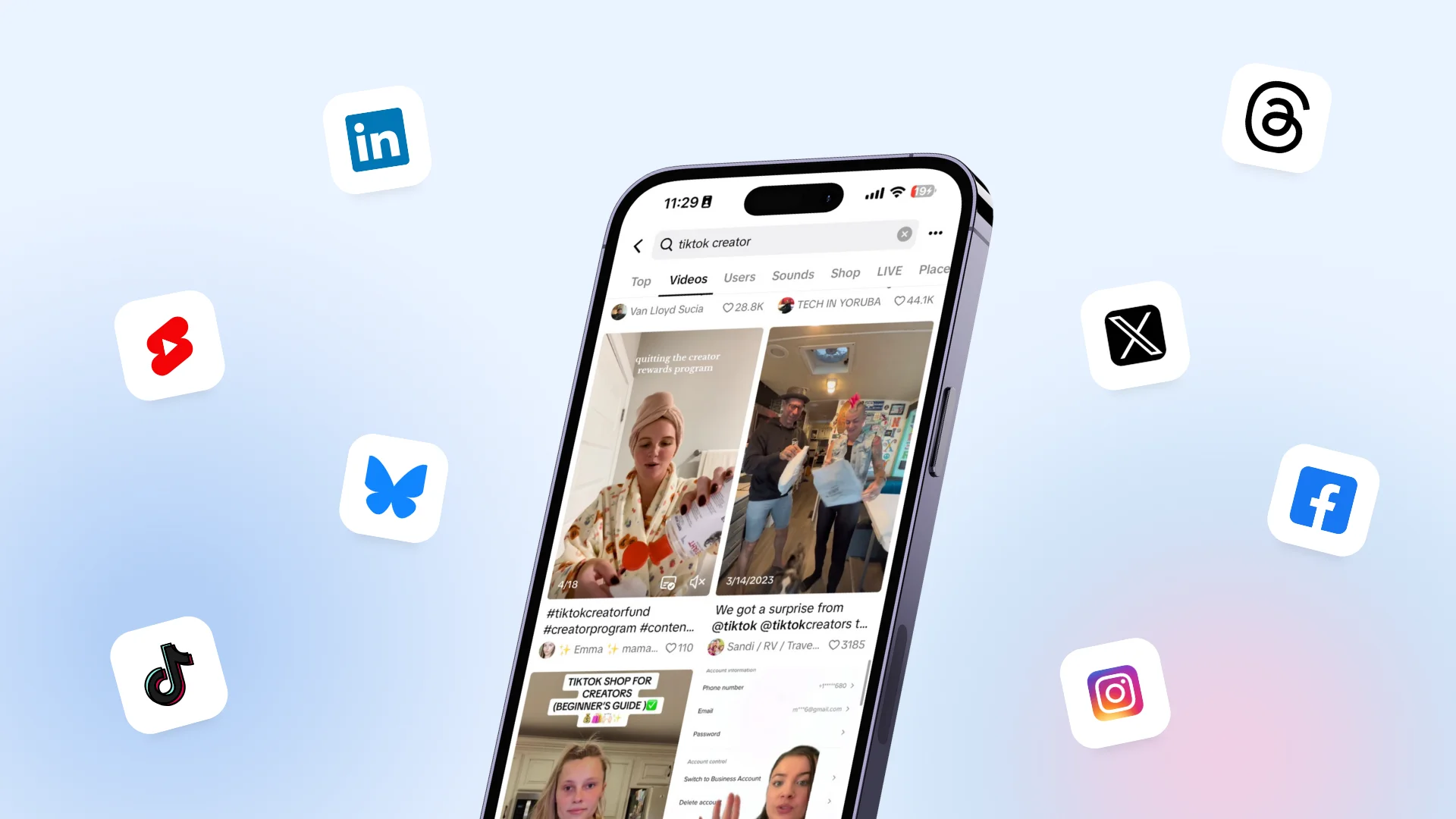
50 Unique Social Media Ideas for Consistent Content Creation
Discover 50 unique social media post ideas to engage your audience, grow your brand, and maintain a consistent content strategy with ease!
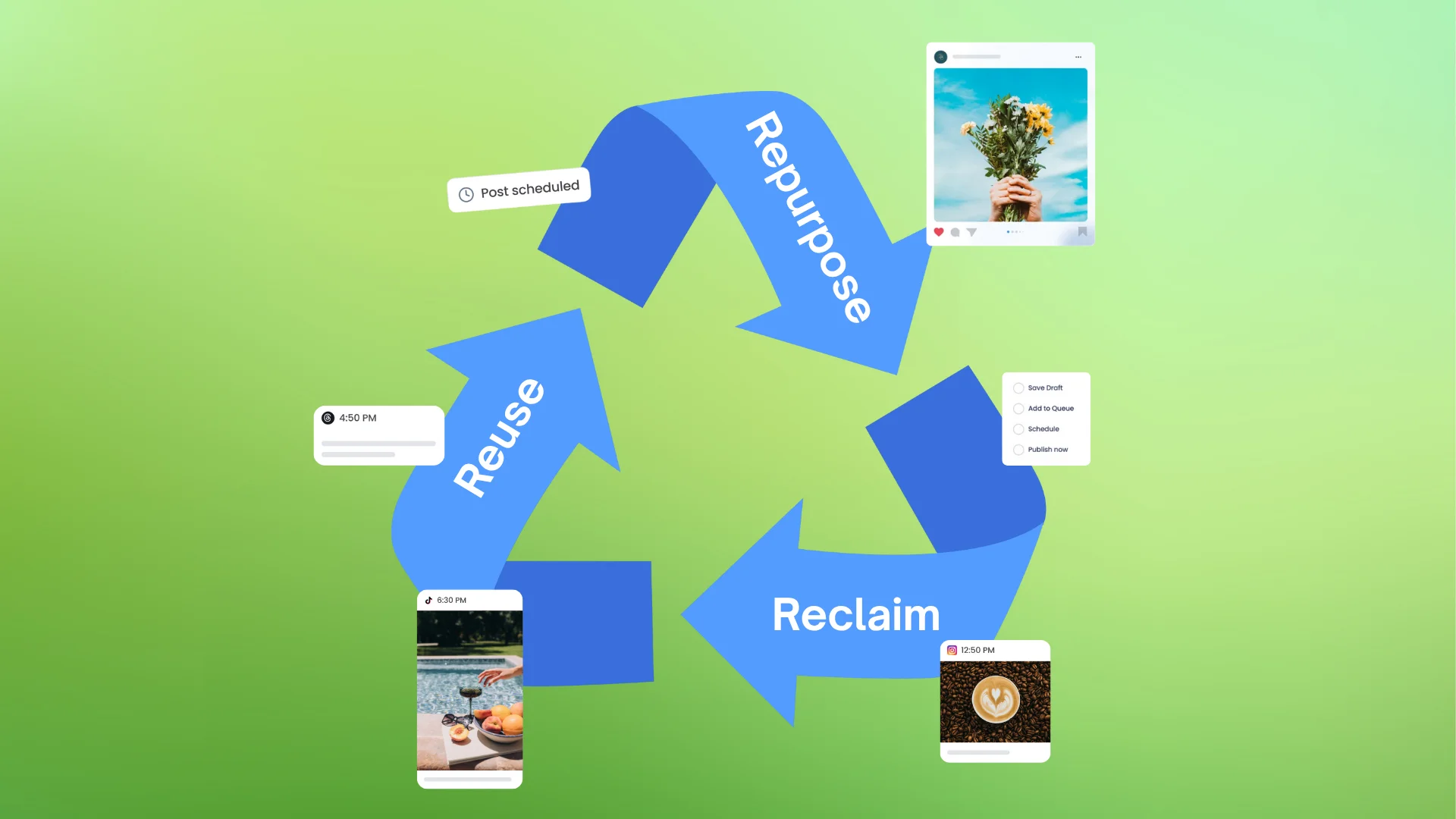
Mastering Content Reuse: The Key to a Consistent and Sustainable Posting Strategy
Published on August 27, 2024
12 min to read
Reach vs Impressions: What’s the Difference
Summarize with AI
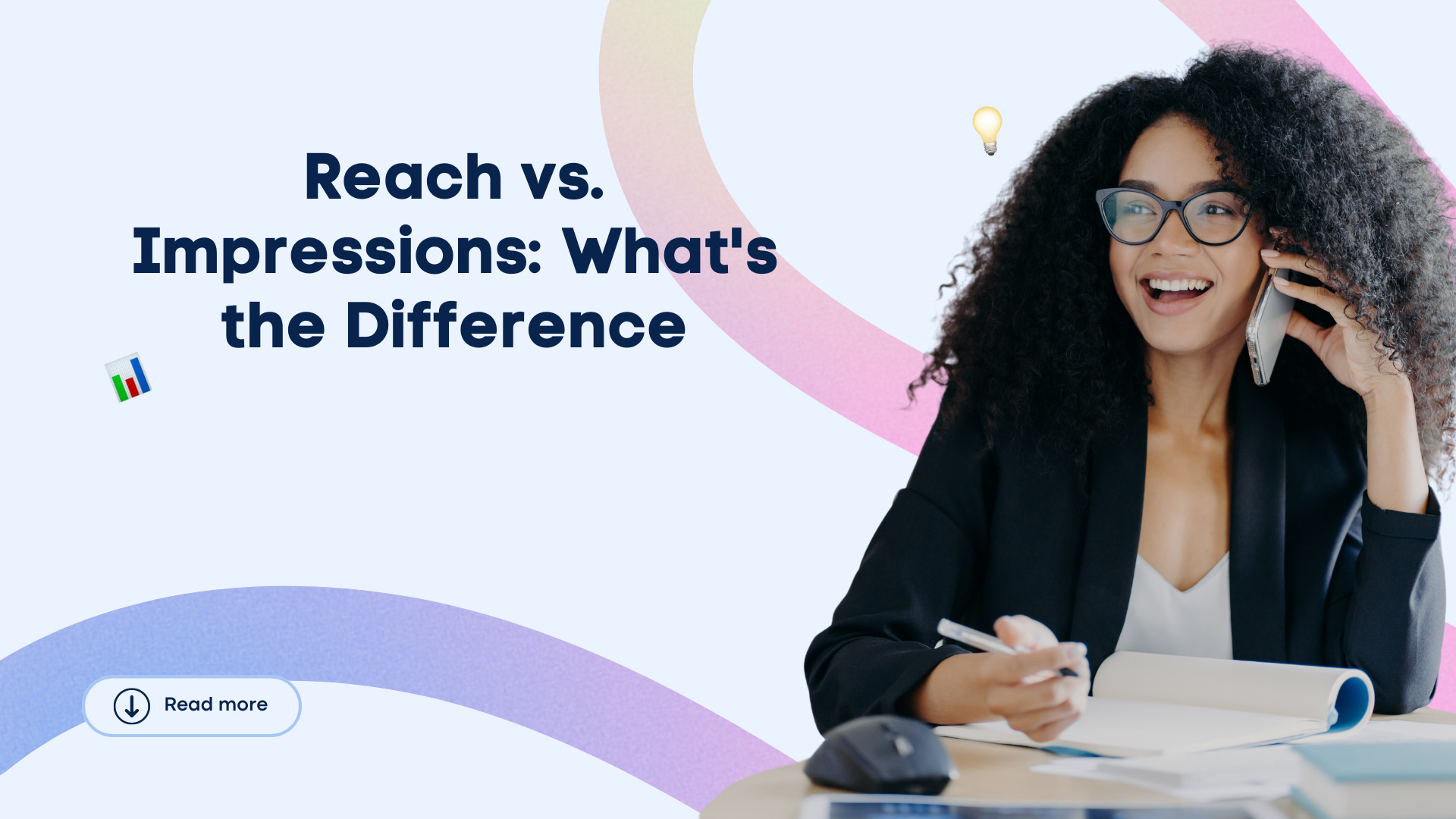
Summarize with AI
ChatGPT
Claude
Perplexity
Share
Vista Social
X (Twitter)
Table of contents
Summarize with AI
ChatGPT
Claude
Perplexity
Share
Vista Social
X (Twitter)
Reach vs impressions—crucial social media marketing metrics, but what do they mean? Why bother knowing their differences?
Understanding reach helps determine if your clients are expanding their audience, and impressions tell you how often their content gets viewed.
The two metrics can give you a clearer view of the effectiveness of your clients’ social media content.
So, what exactly are these two metrics, and why do you need to compare them?
This guide covers the nitty-gritty of reach and impressions, why they matter, and how and why you should compare them to gain actionable insights.
Table of contents
What you will learn
- Reach vs. Impressions: What does it mean?
- Reach vs. Impressions: What is the difference?
- Why should you compare reach vs impressions?
- What does Reach vs. Impressions mean on various social media platforms?
- What is the best tool to track reach vs. impressions?
- What are the best practices to improve reach and impressions?
- What are the common mistakes to avoid when comparing reach vs impressions?
- What are the Reach vs. Impressions FAQs
- Ready to turn reach vs. impressions insights into actions?
Reach vs. Impressions: What does it mean?
Before diving into the difference between reach and impressions, let’s go over each metric.
What is reach?
Reach is the number of users who viewed your clients’ content—the number of various people the content reached.
Understanding reach helps you determine the visibility of your clients’ social media content. It can tell you whether your clients are attracting new viewers or engaging current followers.
Tracking reach helps you assess if your clients’ social media content is amplifying their brands’ online presence.
In-platform analytics tools and dedicated platforms such as Vista Social can track the number of unique accounts (users) who saw your clients’ content, including ads, at least once.
What are impressions?
Impressions are the number of times your clients’ content was viewed, including multiple views from individual accounts.
Generally, impressions are calculated by monitoring the total number of times your clients’ content was displayed across a social media platform, such as the search results or a user’s feed.
Overall impressions can be calculated for your client’s content to determine the total for a single post.
Higher impressions compared to reach usually means that users are looking at your clients’ posts repeatedly.
Reach vs. Impressions: What is the difference?
Reach is the total number of users who see your client’s content, while impressions are the total number of times the content was displayed, regardless of whether users click on it.
One user could have multiple impressions for your client’s single post.
For instance, if a user saw your client’s post four times, that is counted as four impressions. However, the reach is considered one since it’s the same user.
Why should you compare reach vs impressions?
Comparing your clients’ social media reach and impressions offers the following advantages.
- Assess social media content engagement. Higher impressions compared to reach indicate that your client’s content resonate enough with audiences since they are viewing the post multiple times
- Determine audience growth. Comparing reach with impressions help you determine whether your client’s content is reaching new audiences or only the current ones
- Balance content retention and exposure. High reach compared to low impressions can mean your client’s content reaches new audiences but isn’t compelling enough to drive engagement. This bit is crucial since it helps you refine your strategies and yield better results
- Optimize social media ad budget and spending. A thorough comparison of your clients’ reach vs. impressions helps ensure that their paid social media ads balance impact and visibility while avoiding overexposing the content to the same audiences
- Assess content saturation. High impressions with low reach can indicate that your client’s social media content is shown repeatedly to the same audiences, resulting in content fatigue or burnout
- Enhance content strategy. Comparing reach and impressions can give you critical insights to refine your strategies, such as tailoring content to expand your clients’ reach more audiences (reach) or deepen engagement (impressions) to boost impressions
What does Reach vs. Impressions mean on various social media platforms?
Various social media platforms define reach and impressions differently.
Let’s break down what they mean for each social network.
What is reach vs. impressions on Instagram?
Reach on Instagram is the accounts reached, which includes the total number of unique accounts that viewed your clients’ content, such as Stories and posts, at least once.
Accounts reached for Instagram Reels include the number of unique accounts that viewed your client’s video at least once, regardless of whether it was played.
[Must read: Instagram Reels Analytics Ultimate Guide: Tips & Examples]
Impressions on Instagram measure the total number of times your client’s content was viewed, including multiple views from the same user.
What is reach vs. impressions on Facebook?
Facebook reach is categorized into the following:
- Paid reach refers to the number of unique users who saw your client’s paid content, including Facebook Ads
- Organic reach is the number of unique users who viewed your client’s content through non-paid ways, such as through their feeds or shared by friends
- Viral reach is the number of unique users who saw your client’s post or when their Facebook page was mentioned in a Story published by another user.
Facebook impressions are broken down into the following categories:
- Paid impressions are the number of times your client’s paid content was displayed
- Organic impressions are the number of times your client’s content was displayed on their Page or Feed
- Viral reach is the number of times content associated with your client’s Page was displayed in a Facebook Story posted by another user
What is reach vs. impressions on LinkedIn?
LinkedIn doesn’t have a specific metric for reach, but the platform’s analytics feature can show you the number of accounts that have viewed your client’s profile for the past month.
Impressions on LinkedIn include the number of times your client’s post, article, update, or video appeared in a user’s feed.
While LinkedIn will count impressions even if users don’t engage with the post, content with higher engagement, such as comments, reposts, shares, and likes, will likely get more impressions.
[Must read: Ultimate Guide: How to Track Engagement on Social Media]
What is reach vs. impressions on TikTok?
TikTok reach is the total number of unique accounts that viewed your client’s video.
Important note: TikTok’s native analytics considers reach an estimated metric, so it’s not an exact figure.
Impressions on the platform cover all content exposure, including unique accounts that have already seen the post.
Essentially, impressions are the total video views.
What is reach vs. impressions on YouTube?
YouTube reach helps you understand how users find your client’s content based on metrics such as watch time, click-throughs, views, and more.
It can show you which traffic source types, external sites or apps, suggested content, and other factors helped viewers find your clients’ videos.
YouTube impressions track and measure the number of times that at least 50% of your clients’ video thumbnails were viewed on screen for at least a second.
You can examine impression click-through rates to determine how often users view your clients’ videos after seeing the thumbnails.
What is reach vs. impressions on X?
X (formerly Twitter) doesn’t have a built-in feature for measuring reach, only impressions.
On X, impressions are any time users see your clients’ posts, specifically the number of times the posts appear in the search results or on a user’s feed.
What is reach vs. impressions on Pinterest?
Pinterest impressions are the number of times your client’s Pin appeared on a user’s board, homepage, or search.
The Total audience metric is the equivalent of reach on Pinterest.
You can view the Total audience for all content or individually for each pin (monthly or all time).
What is reach vs. impressions on Snapchat?
In Snapchat, reach indicates the number of followers who saw your client’s content over the past week.
You can get insights into paid vs. earned impressions if you run paid Snapchat ads.
What is the best tool to track reach vs. impressions?
Vista Social is one of the best social media management platforms to help you stay on top of your clients’ reach and impressions.
The platform’s social media analytics feature can track and measure reach and impressions from your clients’ connected social media profiles, such as Instagram.
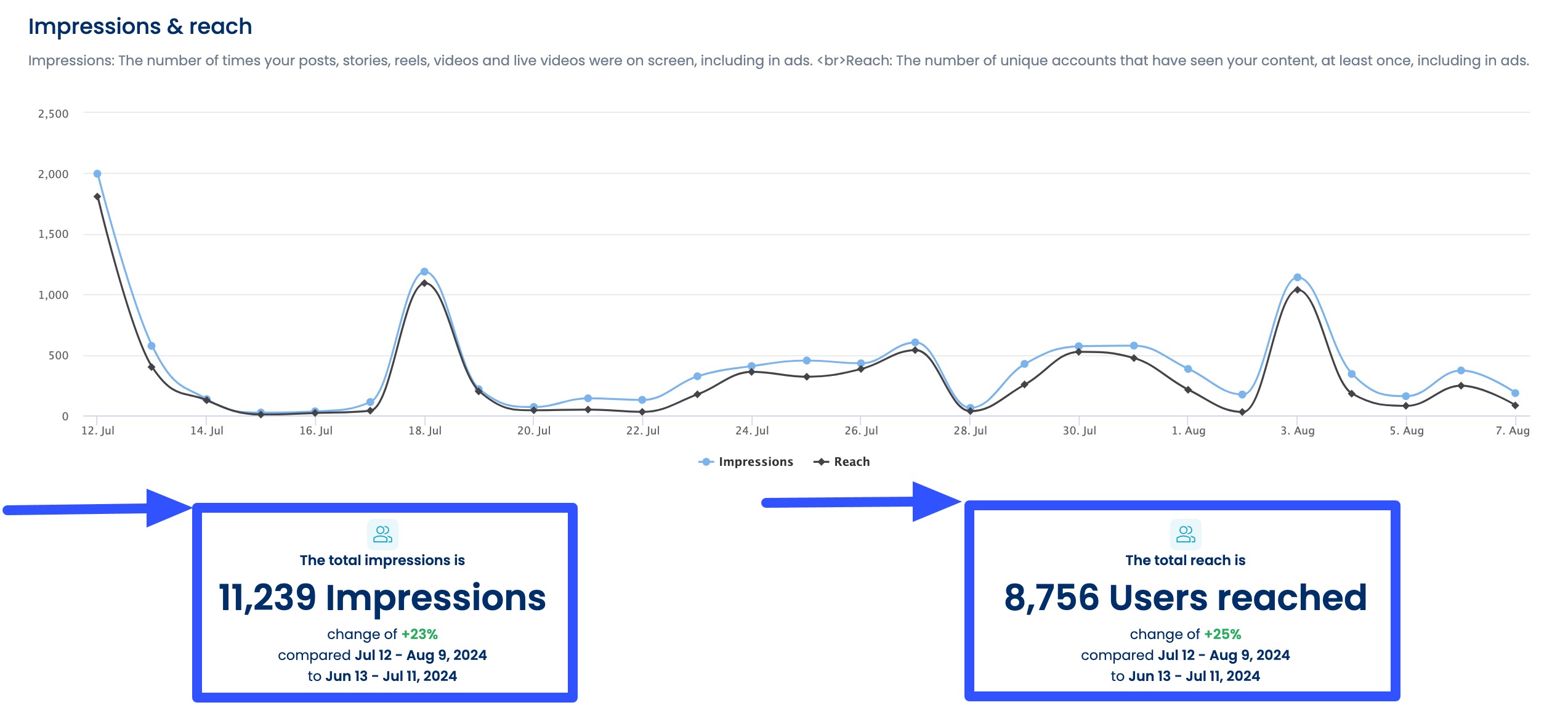
The platform also lets you customize and save reports as templates to help you drill down on your clients’ social media reach and impressions.
[Must read: Mastering Social Media Analytics: How to Create Custom Reports]
You can replace or hide sections, modify metrics and labels, add text, etc.
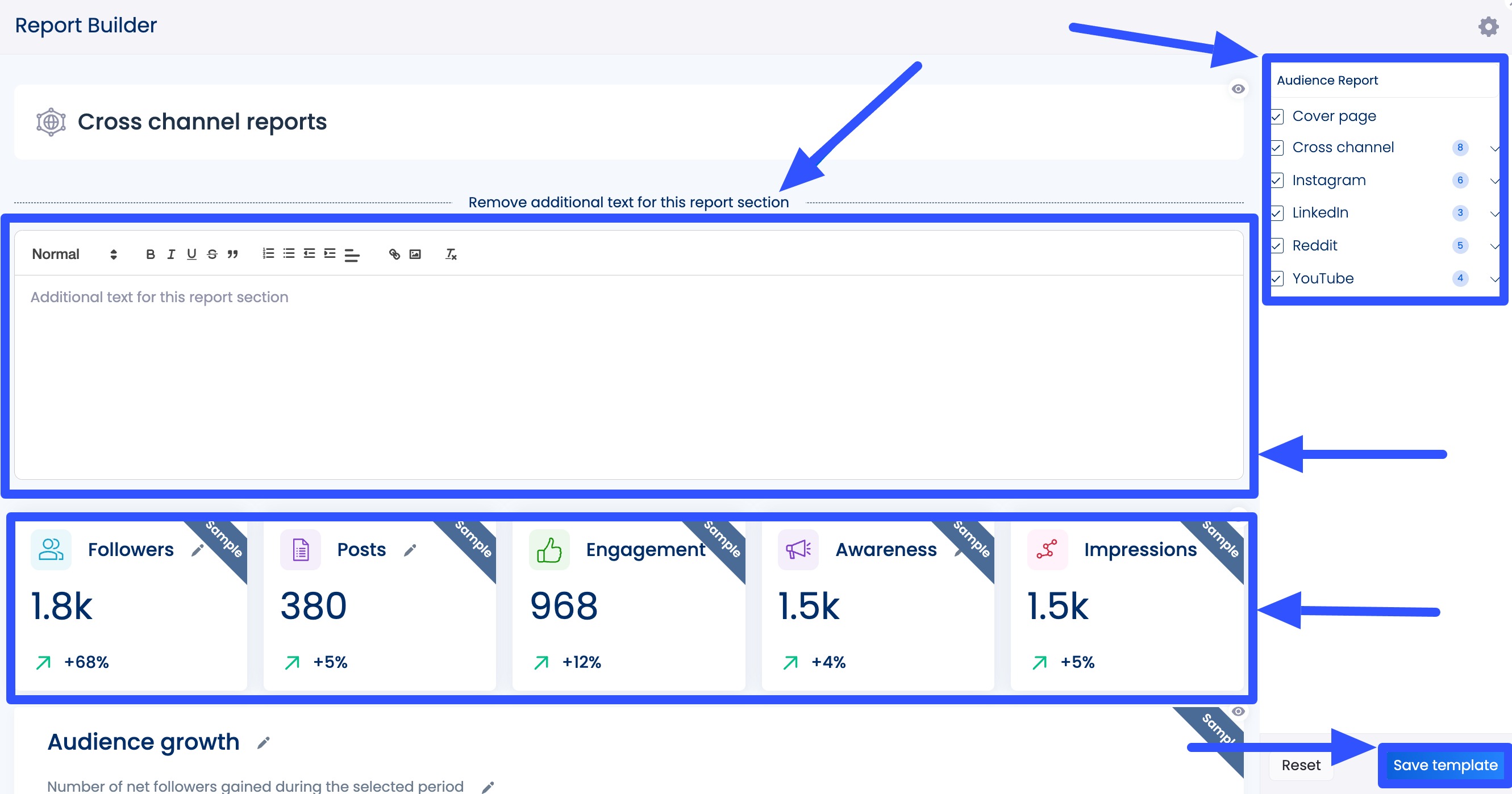
You can also schedule your reports to generate and share with other users and clients automatically.
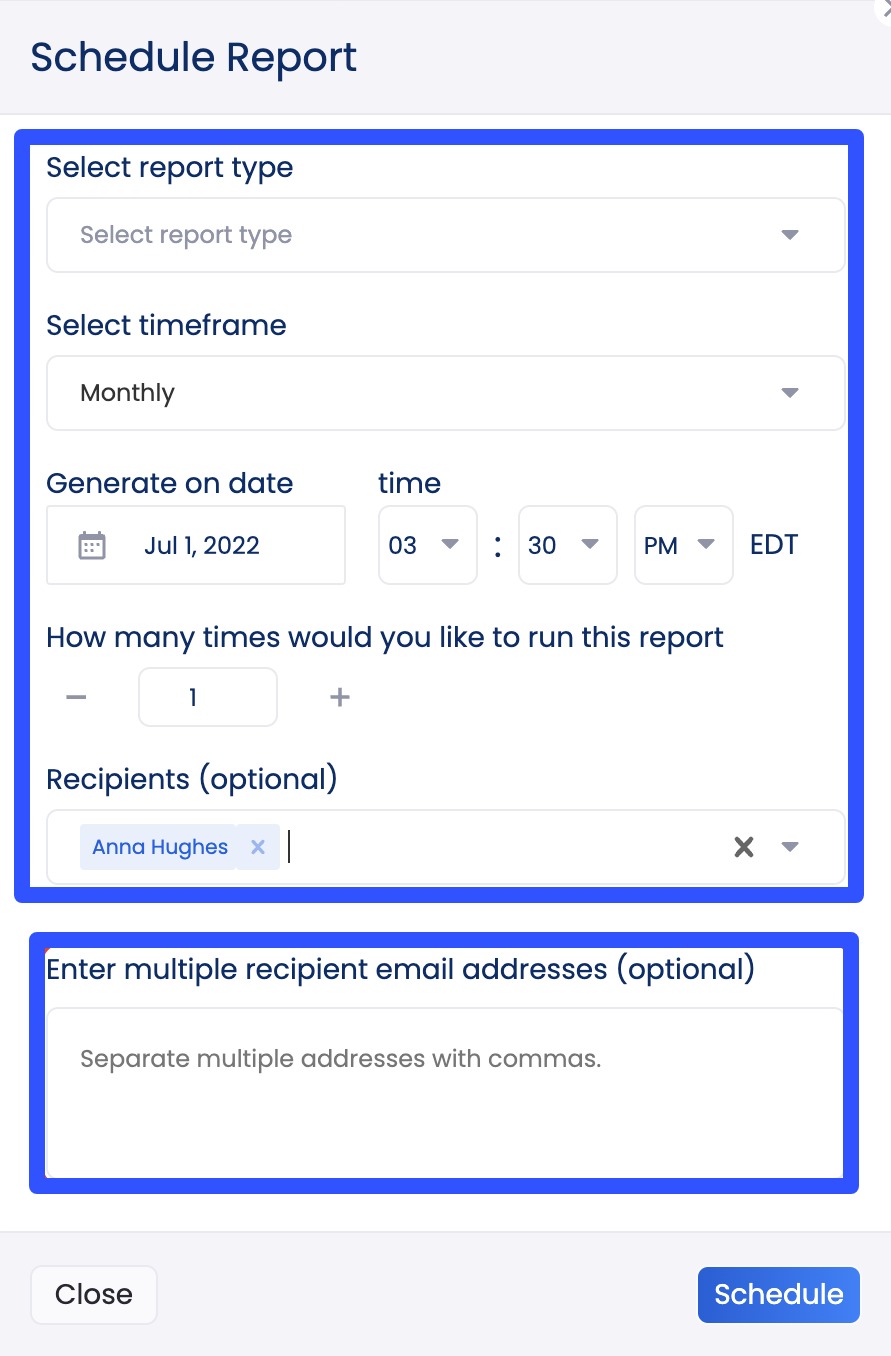
Additionally, you can view a post’s stats, including comments, likes, impressions, and reach after publishing.
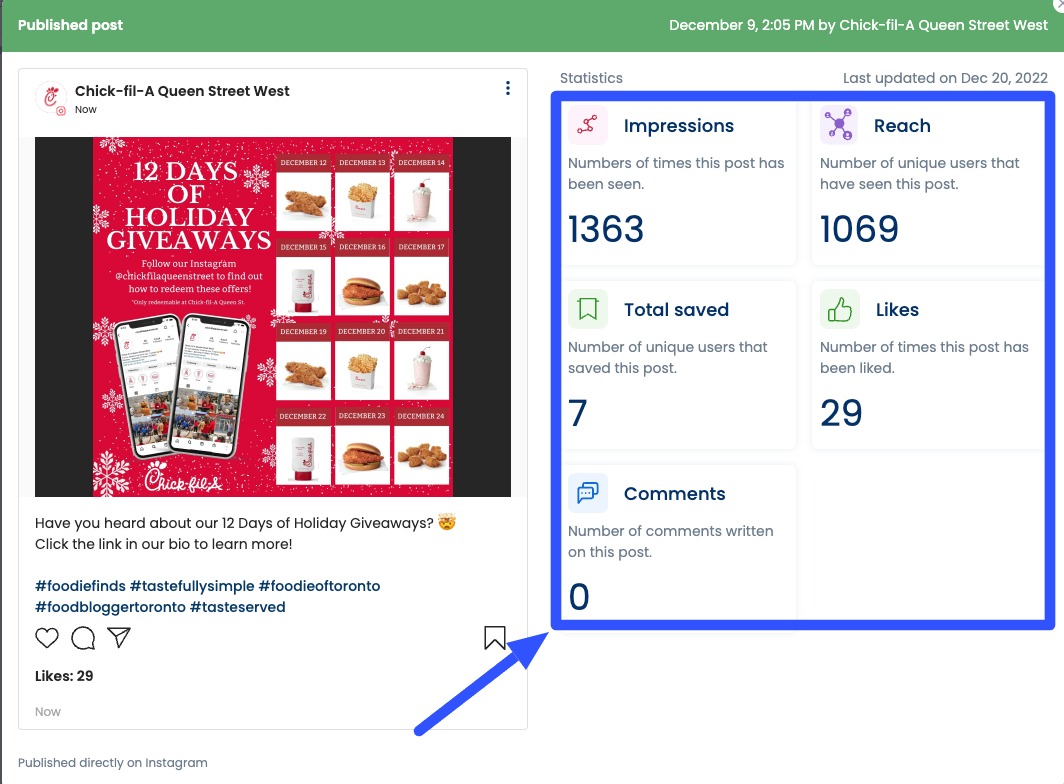
Don’t miss out on Vista Social’s other awesome social media management features, including the following:
- A social media publishing tool that lets you customize and schedule posts for auto-posting
- A centralized content calendar for seamless content planning, development, and management
- An AI Assistant for quickly generating and refining post descriptions and taglines
- Automated approval workflows
- Social media engagement tool that features a unified Social Inbox that centralizes all your clients’ messages, mentions, comments, and reviews in one place
- Etc.
[Must read: Social Media Mentions: How to Track And Manage Them Easily]
What are the best practices to improve reach and impressions?
Check out the tried-and-tested tips to help you boost your clients’ reach and impressions.
Optimize content based on each platform
Each social media platform has specific nuances.
For instance, a text-heavy LinkedIn post is unlikely to work well on visual content-focused platforms such as Instagram.
To boost your clients’ reach, impressions, and, in turn, engagement, you must tailor their content to fit what audiences expect to see on the social media platform.
For example, share short and fun videos on TikTok and long-form texts like articles on LinkedIn.
Remember to post content during optimal times on each social media platform, ideally when your clients’ target audiences are most active.
Optimizing your clients’ content style and posting times and frequencies can boost their chances of reaching more people and generating more impressions.
Maintain a regular posting schedule
Posting consistently helps keep your clients’ brands visible, amplifying their efforts to build trust with their audiences.
After all, the more audiences see the posts, the better they get to know your clients’ brands, which fosters trust and encourages interactions.
Regularly churning out content also helps the social media platforms’ algorithms assess the posts’ relevance.
It increases the chances of your clients’ posts getting shown to more users, boosting reach and impressions.
Use Vista Social’s collaborative content calendar to plan, develop, schedule, and manage posts to ensure your clients have a steady flow of social media content across platforms.
Use hashtags strategically
Hashtags help make your clients’ content easier for social media users to discover and find.
Use a mix of relevant and trending hashtags to help get your clients’ posts in front of more audiences, including users who are not followers.
You can create branded hashtags for your clients and research popular ones in their niches or industries.
Leverage Vista Social’s AI hashtag generator to find and generate hashtags with one click.
Remember not to overload your clients’ posts with too many hashtags since this can look crowded and spammy.
Stick to several high-impact hashtags to help expand the reach of your clients’ posts without overwhelming audiences.
[Must read: 923+ Best, Most Popular, Viral Hashtags for Instagram this 2023]
Include engaging visual content
Your clients’ social media posts must grab the audience’s attention to move the needle effectively and raise impressions and reach.
One of the best ways to create head-turning content is to include visuals in your clients’ posts.
Add stunning images, interesting videos, GIFs, and other visually appealing content that help your clients’ social media posts stand out and encourage clicks, views, searches, and features.
However, don’t just include any visual content just to catch attention.
Ensure the visuals are on-brand and align with your clients’ messaging to encourage audiences to revisit and share the posts, increasing reach and impressions.
Include catchy descriptions to draw more attention to your clients’ posts and make them more impactful and shareable.
Create shareable content
Amplify the shareability of your clients’ social media posts to help boost their reach and impressions.
Create posts offering value, providing solutions, or emotionally resonating with audiences.
The posts can be insightful infographics, inspiring quotes, or funny memes that extend your clients’ reach beyond their followers.
You can also ask your clients’ followers to share the posts and incentivize the action through a contest or giveaway.
Remember to include clear Calls-to-Action (CTAs) to make it easy for participants to follow the next steps.
Shareable content helps spread your clients’ posts and messages to more users, organically increasing their reach and impressions.
Interact with your audience
The “Social” in social media is there for a reason.
You must interact with audiences by answering questions, replying to comments, and joining conversations to encourage them to engage with your clients’ content.
The interactions can boost impressions while increasing content visibility on more users’ feeds since social media platform algorithms favor posts with high engagement.
Essentially, the more your clients interact with audiences, the higher the chances of their followers returning and interacting with their future posts.
It can create a continuous cycle of content visibility and engagement for your clients.
[Must read: Ultimate Guide: How to Track Engagement on Social Media]
Work with influencers
Collaborating with influencers who align with your clients’ brands helps get your clients’ posts in front of wider audiences.
Influencers can share your clients’ content with their established following, significantly expanding your clients’ reach.
However, you can’t just pick a random influencer just because they have a huge following.
Choose an influencer that matches your clients’ target demographic.
Doing so ensures that your clients’ content reaches not just more users but the right audiences—those who are likely interested in and will engage with the posts.
Authentic influencer collaborations can solidify your clients’ credibility while boosting their reach and impressions.
What are the common mistakes to avoid when comparing reach vs impressions?
Don’t make these common mistakes when comparing your clients’ reach vs. impressions.
Focusing only on one metric over the other
Comparing only impressions or reach limits your understanding of the effectiveness of your clients’ social media posts.
While Reach can tell you the number of unique users who have seen your client’s post, it doesn’t explain how deeply or frequently audiences engage with it.
On the other hand, impressions can show the number of times your client’s post was displayed (including repeat views).
However, if you’re not tracking reach, you’re not likely to know if the impressions are from a tiny yet highly engaged audience or a big but disinterested one.
You must track, measure, and compare both metrics to get a full picture.
Overlooking content quality
High reach and impressions can look good on the surface, but they don’t always mean that your clients’ social media posts offer value to audiences.
For instance, your clients can have high impressions and reach, but if the quality of likes, comments, and shares is low, their content may not resonate with audiences.
Remember, meaningful engagement trumps metrics that don’t drive conversions or help your clients’ reach their social media marketing goals.
Assuming higher impressions equal success
Higher impressions don’t always mean your clients’ content performs well.
Sometimes, it can even indicate that your clients get shown repeatedly to the same users, resulting in content fatigue with minimal to no engagement.
Remember, the ultimate goal isn’t just to rack up views but to drive meaningful actons such as comments, shares, clicks, and likes.
The trick is to implement a balanced approach so that your clients drive reach and impressions that lead to meaningful engagements.
[Must read: Proven Strategies to Increase Customer Engagement on Social Media]
Not tracking trends over time
One snapshot of reach and impressions can’t give enough context to fully understand your client’s content performance.
To get the full picture and comprehensive insights, you must track reach and impressions over time to spot seasonality, changes, and trends in audience behavior.
For instance, decreasing reach but increasing impressions can suggest your client’s content is becoming repetitive.
Regular tracking helps you make data-driven adjustments to your strategy, ensuring your clients’ content remains relevant, fresh, and engaging.
What are the Reach vs. Impressions FAQs?
Is it better to track reach or impressions?
It depends on your clients’ social media marketing goals.
Tracking reach is your best bet if your clients want to expand their reach and get their content in front of new audiences.
On the other hand, you’re better off tracking impressions if your clients want to know how often their content is seen, including repeated views by the same users.
However, it’s best to track both to get an overall view of your clients’ social media performance.
Why are my views higher than my impressions?
Impressions are almost always higher than views.
Higher views compared to impressions can mean data interpretation or reporting errors.
You may also be comparing different metric types, such as post impressions vs. video views, resulting in higher views over impressions.
Double-check your tool or platform and the metrics you compare to ensure accurate data and analysis.
What insights can you get from comparing reach and impressions?
Comparing social media reach and impressions can tell you how effectively your clients’ content engages audiences.
High impression-to-reach ratios can mean your clients’ content appeals strongly to audiences, with users viewing it multiple times.
On the other hand, a high reach and low impressions can indicate that your clients’ content needs refining to be more engaging and encourage repeat interactions.
Ready to turn reach vs. impressions insights into actions?
Understanding the difference between reach and impressions is just a piece of the puzzle.
What you do with the insights from these metrics can elevate your clients’ social media marketing game.
Use Vista Social to easily track, measure, and actionable insights into your clients’ social media content performance.
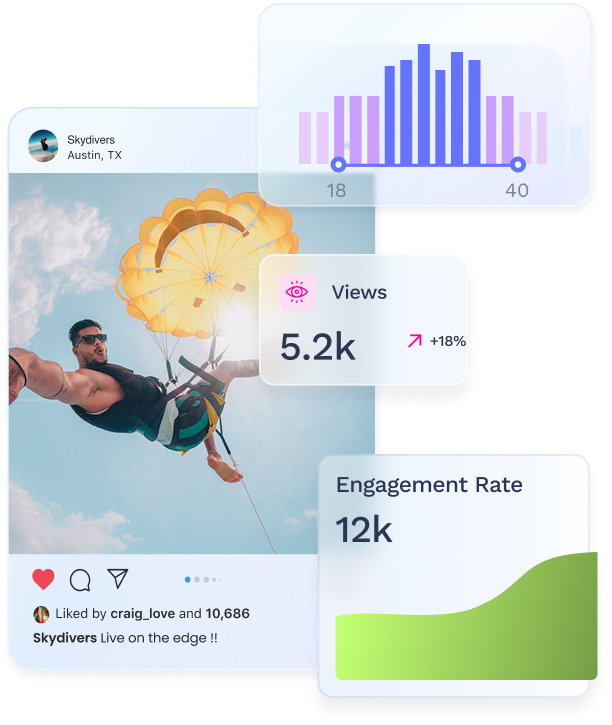
Try Vista Social for free
A social media management platform that actually helps you grow with easy-to-use content planning, scheduling, engagement and analytics tools.
Get Started NowAbout the Author
Content Writer
Jimmy Rodela is a social media and content marketing consultant with over 9 years of experience, with work appearing on sites such as Business.com, Yahoo, SEMRush, and SearchEnginePeople. He specializes in social media, content marketing, SaaS, small business strategy, marketing automation, and content development.
Read with AI
Save time reading this article using your favorite AI tool
Summarize with AI
Never Miss a Trend
Our newsletter is packed with the hottest posts and latest news in social media.
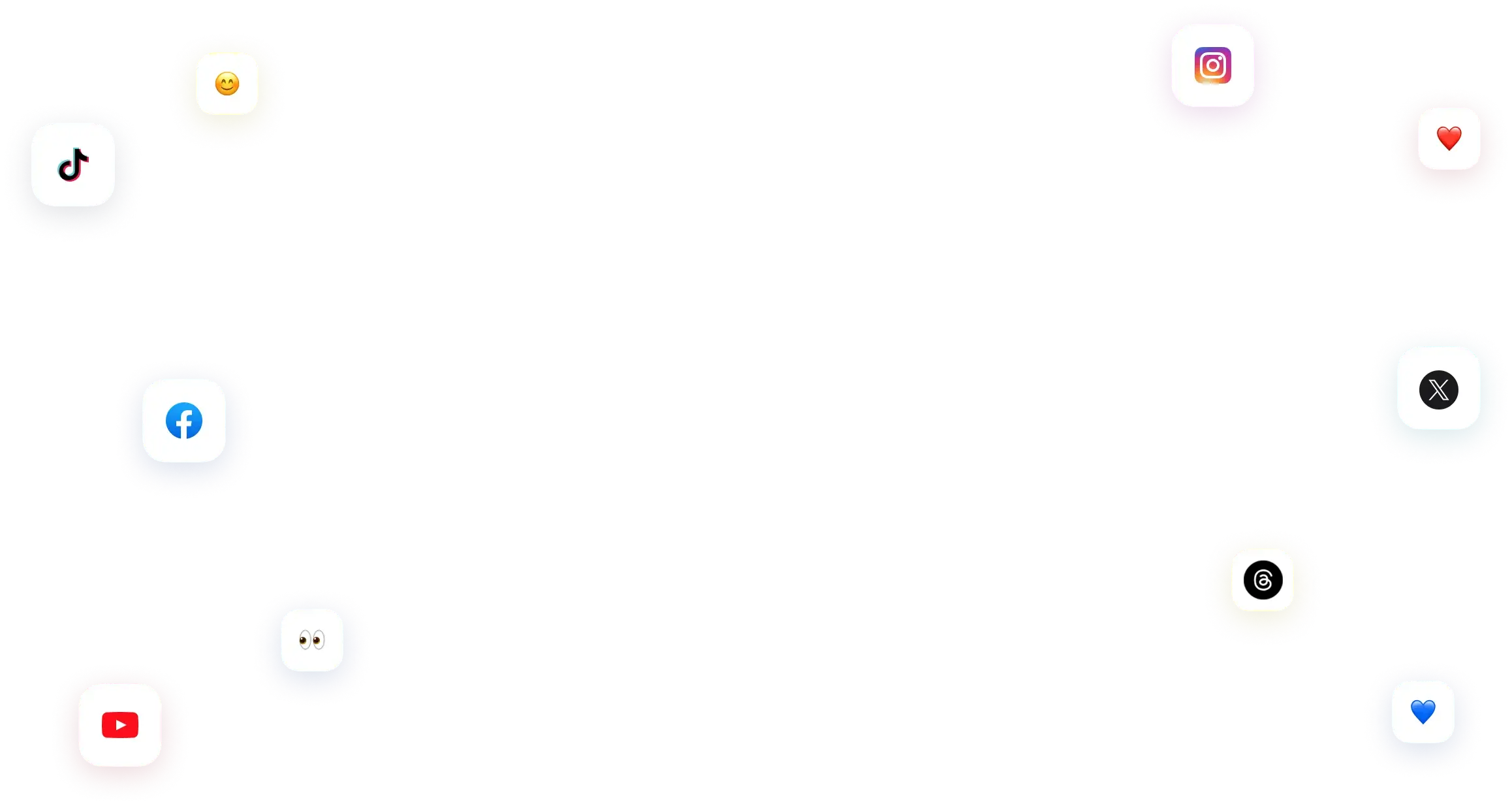
You have many things to do.
Let us help you with social media.
Use our free plan to build momentum for your social media presence.
Or skip ahead and try our paid plan to scale your social media efforts.
P.S. It will be a piece of cake 🍰 with Vista Social
Subscribe to our Newsletter!
To stay updated on the latest and greatest Social Media news. We promise not to spam you!
Enjoyed the Blog?
Hear More on Our Podcast!
Dive deeper into the conversation with industry insights & real stories.
